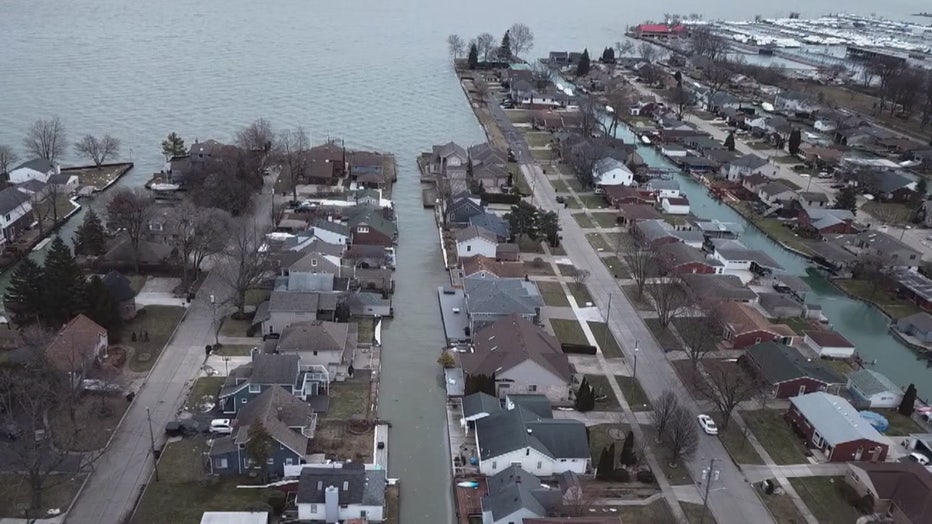Lakes Michigan, Huron, Erie, St. Clair set record highs for May water levels
DETROIT - The Great Lakes are continuing their record-breaking streak with 2019's high water levels continuing into 2020.
Lakes Michigan, Huron, St. Clair, and Erie all set record highs for average water levels in May. The last time lakes Michigan and Huron eclipsed their record levels was in 1986, when a historically rainy year gave way to extreme quantities of water. Levels were also high for Lakes Erie and St. Clair back then, however, they set a new record in 2019.
Since falling to record lows at the beginning of the decade, the Great Lakes have recorded an unprecedented swing of water levels to their 2020 measurements. A big factor in the quickly rising levels is the record amount of rain that has fallen in the midwest over the last few years. In 2019, more rain fell on Michigan than any measured year prior.
Ironically, May was a mostly dry month for Michigan, with the exception of the storms that rolled midway through that catalyzed a 500-year flood event. That heavy rainfall resulted in a wetter-than-average month for Michigan's lower lake basins that ended up setting records.

Homes bordering canals along Lake St. Clair
However, it wasn't mid-May's heavy rainfall that tipped the scales into record-breaking territory. The U.S. Army Corps of Engineers has forecasted 2020's summer to have high water levels since January. And the lakes aren't planning on falling anytime soon.
"The water level of Lakes Michigan and Huron has now risen above the peak level that was reached last year," said John Allis, chief of the Great Lakes Hydraulics and Hydrology Office, Detroit District.
And that means more trouble is on the way for residents worried about erosion to their shorelines and flooding in their homes. Both symptoms of high lake levels, the financial strain on homeowners is unlikely to lessen anytime soon. The Army Corps anticipates record-setting levels for the rest of the summer.
Another wrench thrown into what's proving to be a challenging year for Michigan residents, citizens are already bearing down a pandemic and racially-charged protests sweeping through the state's urban centers. Crises that have already hit Michigan have put budgetary pressure on local and state governments that had been anticipating more damage from lake levels.
With less tax revenue coming in, agencies don't have the luxury to rely on extra funds to mitigate water damage that might be on the way - or has already happened. In Midland, which was forced to evacuate its residents after the Tittabawassee River ruptured the Edenville dam north of the city, has a final cost estimate related to damages tagged at $175 million.
To offset some of the damage, the Army Corps has provided sandbags and other flood fight supplies to citizens threatened by flooding.
May lake levels are as follows:
- Lake Superior was 0.88 feet above average, 6 inches below the record high
- Lakes Michigan and Huron almost 2.92 feet above average, 4 inches above the record high
- Lake St. Clair was 2.75 feet above average, 3.5 inches above the record high
- Lake Erie was 3.21 feet above average, 1 inch above the record high
- Lake Ontario was 1.08 feet above average, 1.5 feet below the record high
Jack Nissen is a reporter at FOX 2 Detroit. You can contact him at (248) 552-5269 or at Jack.Nissen@foxtv.com

